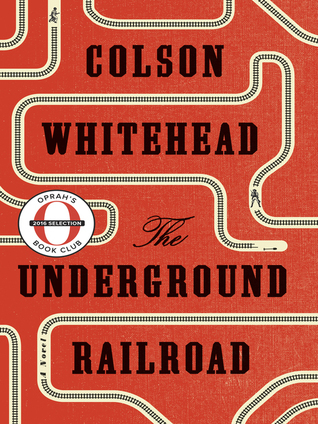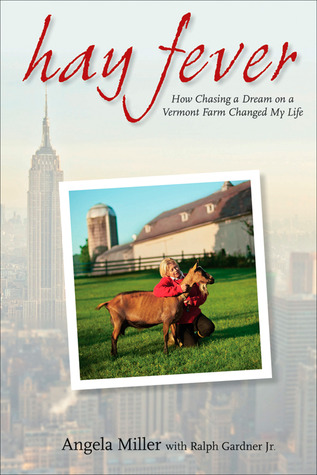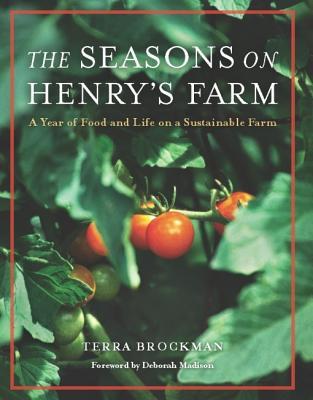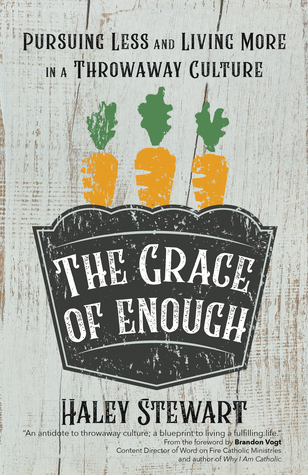
The Underground Railroad by Colson Whitehead (Books & Banter and Evening Edition)
Cora is a third-generation slave on a plantation in Georgia. When she is 10 years old her mother runs away and is assumed to be safe up North as she is never caught. Once her mother is gone life is even harder for Cora as a "stray" on the plantation - and daily life is brutal all the way around. After her master dies and his malicious brother takes over things become even more unbearable on the plantation. When Caesar, a newer slave, approaches Cora about running away she decides to go. The rest of the book is their harrowing journey on the underground railroad - which Whitehead imagines as an actual subterranean railroad. With stops in South Carolina, North Carolina, Tennessee, and Indiana every time things look like they are improving for Cora the bottom falls out - constantly on the run she is wary of making any personal attachments. But, the end of the book does look more promising for Cora without being too neatly wrapped up.
This is a hard book to review because while it is incredibly well-written the content is horrific and brutal. I'll never understand how slavery was accepted in the South (and all over the world), but this book shows just how depraved and evil humanity can be. And US slavery is just one chapter in the world's history of brutality and evil that still hasn't stopped being written. A hard read, but definitely worth it.
This is a hard book to review because while it is incredibly well-written the content is horrific and brutal. I'll never understand how slavery was accepted in the South (and all over the world), but this book shows just how depraved and evil humanity can be. And US slavery is just one chapter in the world's history of brutality and evil that still hasn't stopped being written. A hard read, but definitely worth it.

Hay Fever: how chasing a dream on a Vermont farm changed by life by Angela Miller
I thought this would be a really interesting book, but it was not that great. Angela Miller and her husband Rust just seem like gluttons for punishment and wasting money. He is a successful architect and she works in the publishing industry in New York City. They want to find a new rural "get-away" and come across Consider Bardwell Farm in Vermont and immediately both love it. Almost right away Angela wants to bring it back as a working goat farm and make cheese - but she knows nothing about raising goats or making cheese. So basically they throw money at the farm and hire a ton of employees to run things while they both continue to work full time and split their time between NYC and the farm. I understand running a working farm is very hard and it's very hard to be successful financially, but they just seemed to have more money than sense. I just really didn't like them and after awhile I just got frustrated with the book and all her complaints about employees and money problems. There are other much better farming books out there - don't waste your time on this one.
One quote I really disliked:
"As a matter of fact, the farm has triggered a talent I didn't know Rust had: landing government grants. That can be as important to the survival of today's family farm as producing children to provide free labor was in the past." (p. 133) Any business dependent on subsidies or government grants is NOT successful - just talk to Joel Salatin, Ben Hewitt, or Forrest Pritchard and read their books.
One quote I really disliked:
"As a matter of fact, the farm has triggered a talent I didn't know Rust had: landing government grants. That can be as important to the survival of today's family farm as producing children to provide free labor was in the past." (p. 133) Any business dependent on subsidies or government grants is NOT successful - just talk to Joel Salatin, Ben Hewitt, or Forrest Pritchard and read their books.

The Seasons on Henry's Farm by Terra Brockman
The Seasons on Henry's Farm is a week-by-week look at the running of an organic farm. Terra Brockman's parents bought what they all called "the Land" in the early 1970's. They eventually moved there full time, but now it's being run by Terra's brother Henry. Three of the five siblings have moved back to the farm or the farm area and all work together on Henry's farm. Terra had taken over writing the weekly email "farm notes" that eventually turned into this book - what's in season, what they're planting, and other farm events/happenings. There is SO MUCH WORK involved in running a full-time farm that at times just reading this book made me anxious! Even in the winter there is work to do they only really get "time off" December through February and even then there are still things to do to prepare for spring planting again. It definitely makes you appreciate that there are people who are willing to do this very difficult and often low-paying job so that we have fresh, healthy food to eat. Each chapter also includes at few recipes using some of the ingredients discussed in that chapter. Overall, an interesting and insightful look at the day-to-day operations of an organic vegetable farm.

Life's Work: a moral argument for choice by Dr. Willie Parker
Some quotes I liked:
"In the late seventies, a small but powerful alliance of Protestants, Catholics, and political strategists intent on putting Ronald Reagan in the White House came up with a cynical plan. By framing abortion as the most important threat in a broad secular assault on 'family values' - and using rhetoric of the 'sanctity of life' lifted directly from the Roman Catholic catechism - a group of what were essentially lobbyists found they could mobilize conservative voters throughout the Bible Belt, millions of citizens who had previously been politically passive and who regarded the polls as profane. The public face of this alliance was an organization called the Moral Majority, led by a fundamentalist Christian pastor from Virginia named Jerry Falwell, who conflated religion and politics by preaching that abortion was murder, and that the moral duty of a good and faithful Christian was to declare him- or herself to be 'pro-life.' It was, perhaps, the most successful marketing campaign ever launched in the political sphere, creating legions of single-issue voters who would stand in line at the polls in any weather to elect pro-life candidates." (p. 120-1)
"This sacralization of motherhood in every sector of the privileged classes enables a widespread social conservatism that, at base, diminishes women's liberty: a consensus that motherhood is a woman's most important role." (p. 178)

The Comfort Food Diaries: my quest for the perfect dish to mend a broken heart by Emily Nunn
Some quotes I liked:
"How does a person make choices about relationships, ones that might lead to a stable happy family, when she's never been given a recipe that makes any kind of sense at all? And how does she learn to let go of the bad recipe, even though it's a family heirloom?" (p. 38)
"When Mariah's [Emily's aunt] older brother Richard was a medic in a naval hospital during World War II, Edith contacted his commanding officer and said, 'We do not know how to work the planting machine. Could you let my son Richard come home?' Instead, he sent a busload of seamen. They came every year until the war ended to plant peanuts, cotton, and tobacco. And after the war was over, that officer and his friends came back to hunt on the family property along the Nottoway." (p. 166)
"But at this moment, miraculously, I felt relieved in a way I never had before. And I would come back to it for comfort, again and again. Because I finally realized that trying to understand my family's bizarre patterns of devaluing and discarding people closest to them was so much less important than realizing that the patterns were just that - a systemic dysfunction - and that I could escape the system." (p. 292)

The Dreamers by Karen Thompson Walker
One day a young woman just starting college feels sick and goes to sleep - but can't be woken up. Not long afterward she dies. Then two more girls on the same floor fall asleep and can't wake up, then more until the small town of Santa Lora, California is under complete quarantine with check-points and military vehicles delivering supplies. As the sickness spreads and no one can figure out why some succumb and others don't, the townspeople have varying reactions - some panic while others just go on with their normal lives as best they can. The story is built around a few main characters - Mei, who's roommate is the first to get the sickness, Ben, Annie and their baby daughter Grace, who are new to town and parenthood, and Libby and Sara, two sisters living with a prepping father who's been planning for something like this for years. But, no one is immune to the sickness and everyone in the story is affected. Similar to The Age of Miracles the story explores people's reactions to a disaster, as well as just the ordinary lives of the characters. Incredibly well-written, I could NOT put this one down. I can't wait to see what Walker writes next!

The Grace of Enough: pursuing less and living more in a throwaway culture by Haley Stewart
Stewart and her husband had 3 young children when they decided to sell their house in Florida and move to Texas to intern on a farm for a year and all live in a 600 square foot apartment. Leading up to and during that year they began to re-assess what they wanted for their family. Did they want to work more and more hours to barely see each other, but achieve the "American dream?" Or did they want to take a more radical faith-based step to live with less and fight against the tide of our throwaway culture. Each chapter talks about an area of their lives or their Catholic calling and how they made changes to live more authentically. I didn't realize when I put this book on hold that it was from a Catholic perspective. Not that that would have completely turned me off from it, but it was VERY much Catholic-focused. I am a Christian, but I don't like the Catholic Church and I especially don't want the pope telling me I shouldn't use birth control - Stewart and her husband don't and there's a chapter about that (during which I rolled my eyes a lot). There are some good tips and ideals, but it was VERY Catholic heavy which didn't speak to me at all.
No comments:
Post a Comment